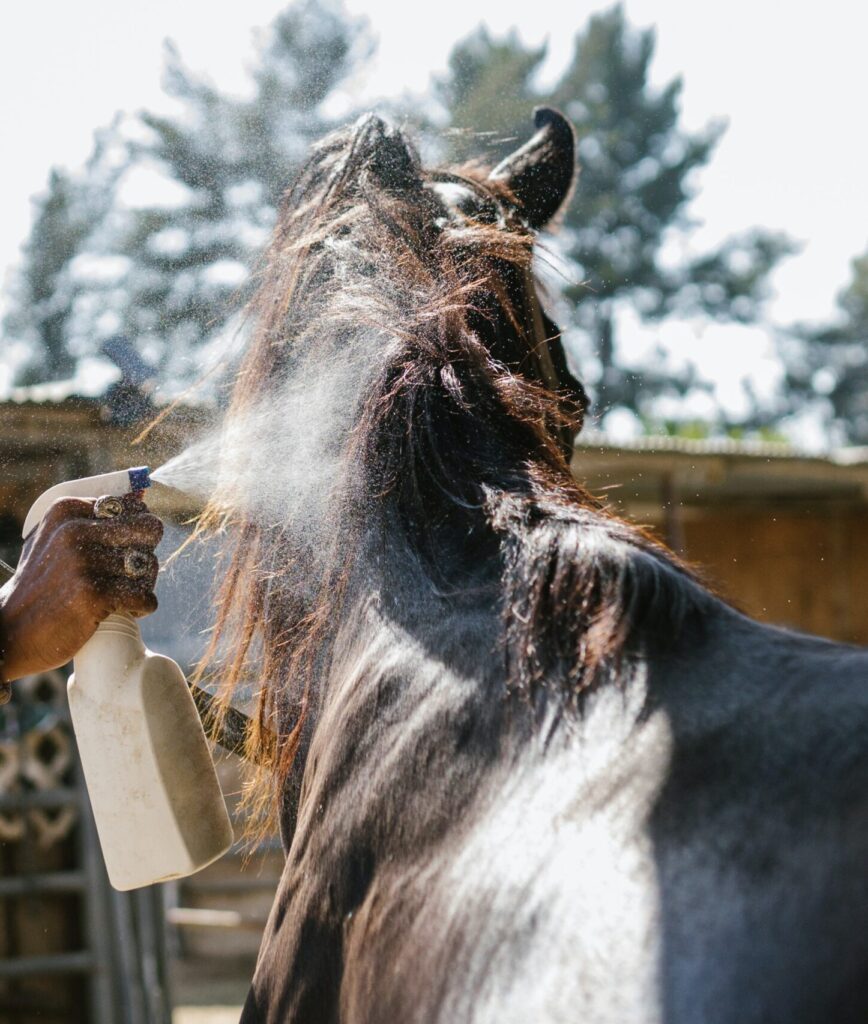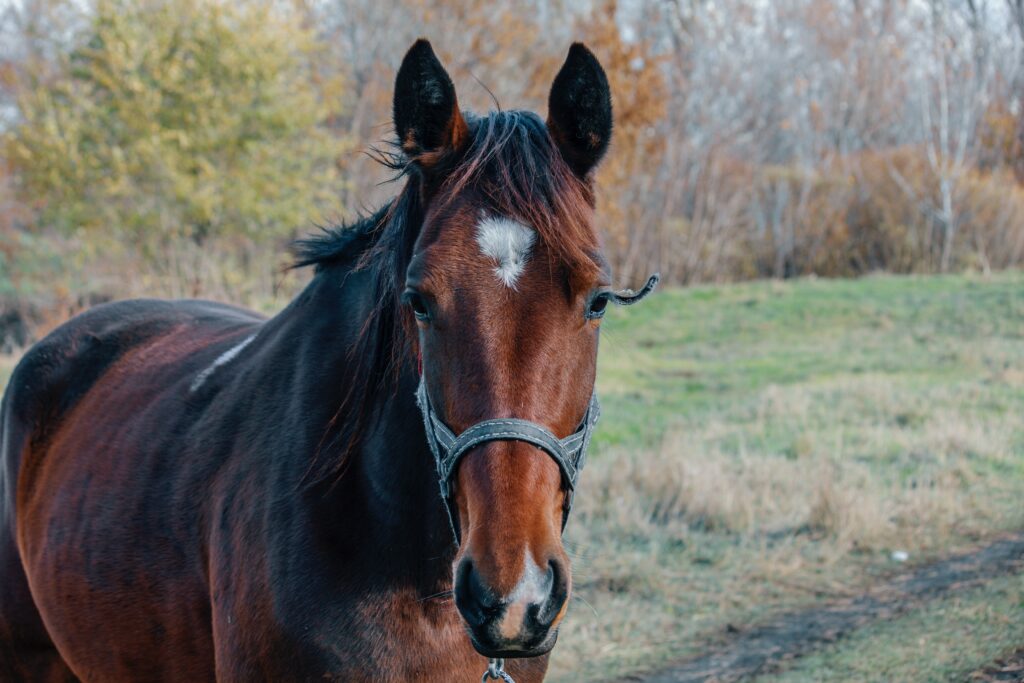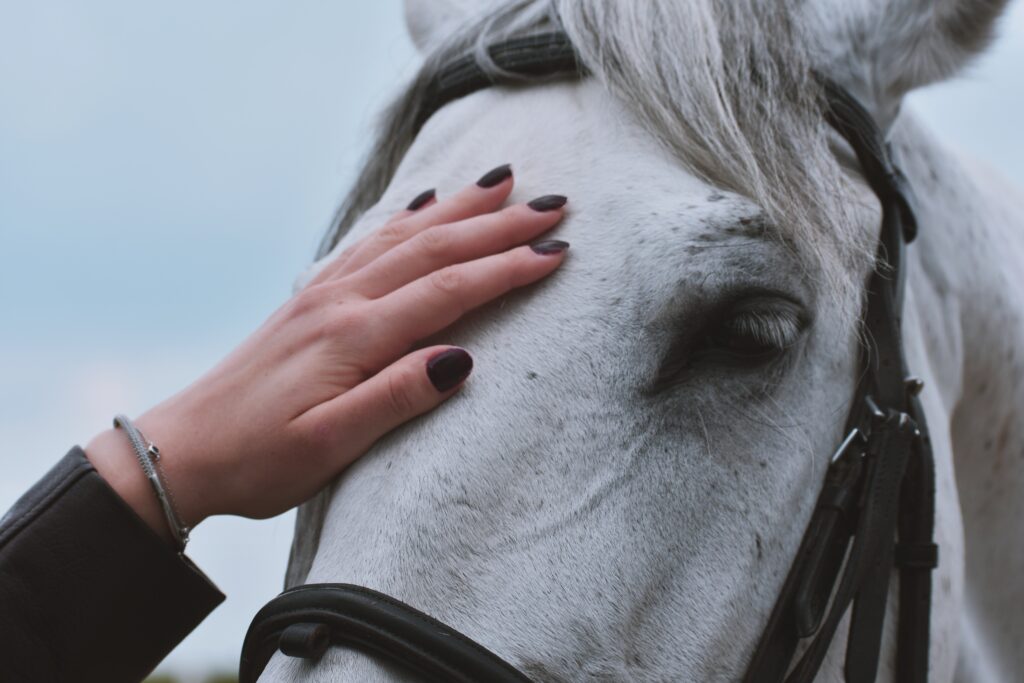Flies are a huge nuisance, especially during the warm spring and summer months. Although horses are naturally equipped to handle flies when together in a herd, there are times when they need a little assistance. One great option for keeping the bugs away from your horse? Fly spray! Here’s everything you need to know about fly sprays, how to use them, and what’s available on the market.
Why Use a Fly Spray for Your Horse?
Protection from flies helps keep your horse (and you) happy. Flies are annoying at best, and painful at worst. If you’re riding or training your horse, flies can keep them from paying attention, which leaves you both frustrated.
Fly sprays are the most popular method of fly protection. It’s easy to apply, and highly effective. Whether you’re out on the trials or just doing some exercises in the round pen, fly spray is crucial during the spring and summer.
How to Use a Fly Spray for Horses
Using a fly spray is pretty simple. Once you’ve selected the best one for you, application is simple. You’ll gently spritz the fly spray all over your horse. Be careful not to put too much on the saddle area, as it can make your horse more slippery. I have made that mistake when riding bareback before and, well, ended up on the ground. Don’t put the spray directly on your horse’s face, but rather apply it to a cloth or brush and then rubbing your horse’s head.
Types of Flies
The fly family includes more than just the small, buzzing house flies we’re used to. You’ll also need to keep an eye out for deer flies and horseflies. An effective bottle of spray will help keep annoying flies at bay!

Deer Flies
Deer flies are very similar to horse flies. They’re slightly smaller, even though they also bite to get at your horse’s blood. They’re common around horses and other large domestic animals.
Horseflies
Horseflies are more than just annoying, they are painful for your horse (and you!). They’re larger than regular flies, and they bite.
What to Consider When Picking the Right Horse Fly Spray
There are a wide range of fly sprays on the market, and it can be hard to figure out which one is best for your horse. There are several factors you should consider when making your choice.
Your Horse’s Unique Needs
Every horse is different. Is your horse sensitive to different chemicals or ingredients? If this is the case, you may need to opt for natural deterrents.
Another example: perhaps you have a horse who is easily frightened by the sound and feel of the spray. While you work on desensitizing them, it may be good to have fly wipes on hand so to make application easier.
Purpose
Are you looking for something to keep the flies at bay while you ride? Are you more of a quiet trail rider, or will you be jumping or running barrels? If higher levels of activity are the case, you’ll need something that will stick to a sweaty horse.
Weather Conditions
Does it rain a lot where you and your horse are located, or is it pretty dry? If it rains consistently, you may need to consider an oil-based formula, which may last better than a water-based spray.
Main Ingredients
Look over the ingredients carefully to make sure the fly spray is right for your horse. Are they allergic to anything? If so, you may need to look for a natural repellent.
Oil or Water
Fly products normally come with two bases: oil or water. Oil sprays work quickly, but they cause dust to stick to your horse’s coat. Sprays with a water-based formula are less slick and don’t attract dirt like oil sprays or leave any oily residue.
Natural or Chemical
Some chemicals are too harsh on a horse’s skin. To keep your horse comfortable, you may need to pick a fly spray with natural ingredients. Some natural sprays have a more pleasant smell, too.
Concentrate Vs Spray
Fly spray comes in many forms. Some bottles are ready to spray. Some fly spray comes in a concentrate that you need to mix with water before it can be applied.
Size
How many horses do you have? Are you planning on buying a single spray bottle, or a quart size container of concentrate?

A Few Good Fly Spray Options
- Absorbine Flys X Insecticide Spray
- Absorbine UltraShield Green All-Natural Fly Spray
- Espree Aloe Herbal Horse Spray
- Farnam Endure Sweat-Resistant Fly Spray
- Farnam Bronco Gold Equine Fly Spray
Homemade Fly Spray for Horses
Many people are interested in using a homemade fly spray for their sensitive horse. If you’re a fan of natural products, it may seem like the better option. Perhaps it’s cheaper, and better than the sprays with what some consider harsh chemicals? Let’s see:
Does Homemade Fly Spray Work?
Homemade fly sprays have mixed results. For some horses and situations, they work well. Other times, they’re lackluster. If you’re worried about the active ingredients in traditional fly sprays or your horse has sensitive skin, it may be worth a try to protect your horse from flies.
How to Make Homemade Fly Spray for Your Horse
Interested in giving homemade fly spray a shot? You’ll need to combine apple cider vinegar and water (a 2:1 ratio) with a little mild dish soap. Put it in a spray bottle and you’re good to go. It should last a few hours, but results vary.
Some people also add essential oils like citronella oil, eucalyptus oil, or lemongrass essential oil to their fly spray mix to make a citronella spray.
We’d recommend giving your vet a quick call before using anything new on your horse.
Other Fly Control Options
Fly spray isn’t the only option available for horse owners. If you’re having trouble with flies, the following are a few good ways to protect your horse.
Fly Sheets
Fly sheets are lightweight blankets that protect your horse from biting insects. They also offer UV protection. They’re usually made of a very light fabric and mesh.
Fly Fringe
If you want to protect your horse’s face while you ride, a fly fringe may be for you. It’s simple to use: you attach it to your horse’s bridle and the fringe keeps flies from landing on their face, while still allowing them to see.
Fly Treatment
Did you know there are pellets that you can add to your horse’s feed that will prevent flies from biting them? These supplements are one way to raise your horse’s natural defense.
Pest Control Services
There’s other methods of fly control too. You may consider fly predator insects (like tiny, harmless wasps). They eat flies and prevent them from annoying your and your horses. They have short lifespans, so you’ll need to replace them often. The wasps that reduce the fly population are great and don’t require constant spraying.
Some people also hire a professional to use pesticide treatments to knock down all kinds of flies. Be very careful, some pesticides can be dangerous to horses.

Frequently Asked Questions About Fly Spray for Horses
Why Are Flies Attracted to Horses?
Flies are drawn to the moisture and humidity created by large animals, like horses. And where there are horses, there’s manure. You’ll see flies buzzing around the pasture for this reason.
How Do Flies Impact My Horse?
Flies can be extremely annoying. Sometimes, they bite your horse and it can be painful. Some horses develop welts. It can also irritate your horse and distract them during groundwork or rides.
Can I Use Fly Spray for Humans on My Horse?
No, don’t use bug spray you’d use for yourself on your horse. The ingredient proportions are different.
How Long Does Horse Fly Spray Last Before I Need to Reapply?
Some sprays claim to last up to 14 days, but will more likely last for two or three. Natural fly sprays may need to be applied every few hours if they use gentle ingredients.
What If My Horse Is Frightened of Fly Spray?
Some horses are spooked by fly spray. You’ll need to spend time desensitizing them. Sometimes in this instance, I’ll make the “psssssht” sound until they get used to that, and then slowly incorporate gently spritzing them, stopping when they stop moving.
When Is Fly Season?
Fly season for horses begins early, even in April, and usually lasts until September or into the beginning of October.
Can I Use Fly Spray on My Horse’s Head?
No, you should avoid application to eyes. Instead of direct application to your horse’s head, we suggest spraying an absorbent cloth or soft brush and applying fly spray to the face that way.
Does Fly Spray Protect My Horse Against Deer Ticks?
Ticks are another thing you need to worry about as a horse owner. Most fly sprays also help prevent ticks, but you should read the label of info about your fly spray in order to double check.
